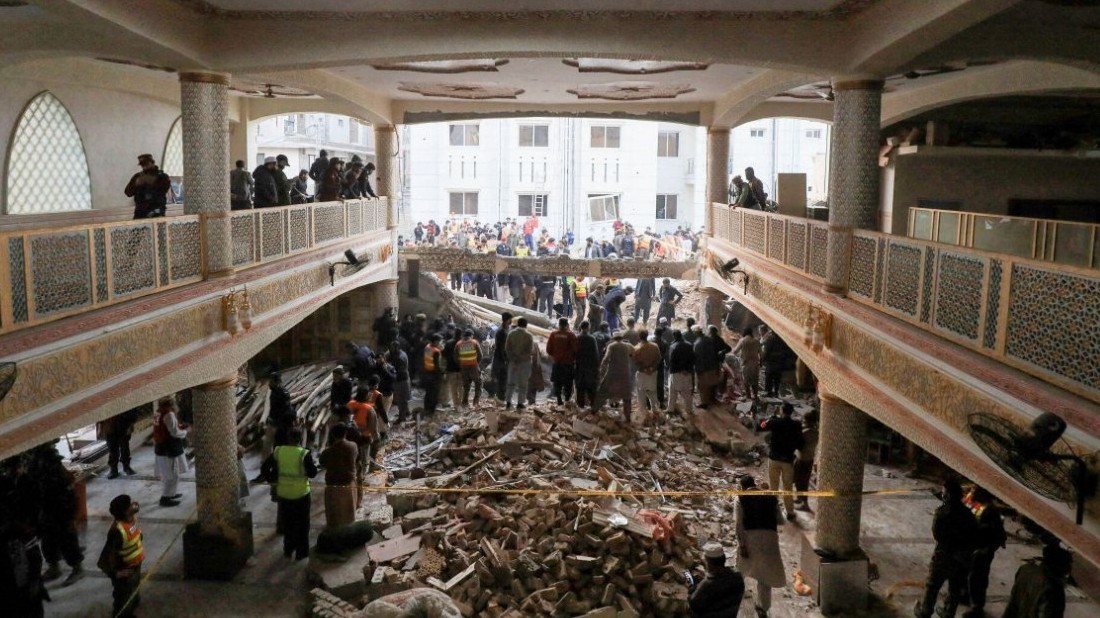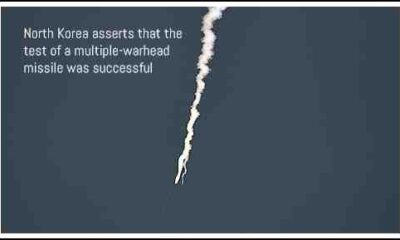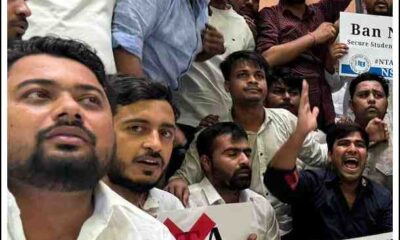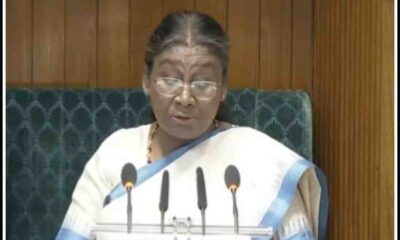Latest News
Pakistan mosque blast: What motivated the vicious assault?
Published
1 year agoon

Authorities in Peshawar, Pakistan, are looking into how a suicide bomber killed at least 100 people at a mosque in a high-security area.
Pakistanis are in disbelief after the incident, one of the bloodiest in recent years. Security personnel who were praying made up the majority of the dead.
The city police, who are fighting terrorists head-on, think they were intentionally targeted to sap their morale.
The ceasefire was broken off by the Pakistani Taliban two months prior.
Since then, there has been an increase in violence, with frequent assaults on law enforcement and military personnel.
Later, the so-called Tehrik-i-Taliban Pakistan (TTP), a hard-line Islamist militant organization, denied responsibility for the bombing and put the blame on the leader of a split faction.
The denial is being questioned by some observers, who contend it might be an attempt to divert attention.
The TTP has previously refrained from taking responsibility for some attacks on mosques, schools, or markets in favor of framing its brutality as a conflict with security forces rather than a war against the people of Pakistan.
For years, the TTP has been engaged in deadly combat with Pakistan’s security services and military. The group is distinct from the Afghan Taliban but adheres to the same hard-line philosophy.
The Pakistani Taliban’s top priority on a long list of demands is to establish its version of Sharia rule in Pakistan’s northwest.
The TTP formerly threatened to destabilize Pakistan from territory it held along the mountainous border with Afghanistan, which has long been a hub of insurgent activity. This was around ten years ago.
Schoolgirl Malala Yousafzai was shot in October 2012 in one of the Pakistani Taliban incidents that received the most attention and was universally condemned. She had been promoting the education of girls.
Read Also – India’s GDP Growth Will Slow to 6-6.8% According To Economic Survey: 10 Points Budget 2023
The Peshawar school massacre, which the TTP did not claim but which left 141 people dead, most of them children, and was followed by a significant military offensive two years later, drastically diminished the group’s power in Pakistan.
In response to public outrage, the army razed militant strongholds and drove rebels into Afghanistan. Pakistan’s internal militant violence decreased.
But in recent years, attacks in northwest Pakistan have increased once more as a result of the TTP and other groups.
Imran Khan, a former prime minister of Pakistan, gave terrorists who had been hiding across the border the chance to return home and start over if they put down their weapons after the Taliban retook control of Afghanistan in 2021.
The current issues began when the militants returned but refused to accept the surrender of their weapons. The discourse that Imran Khan started eventually broke down as a result.
After he was overthrown last year, new political and military authorities took over. They rejected the terrorists’ demands and ceased communication with the Pakistani Taliban. The TTP subsequently broke the ceasefire in November and started attacking again.
People in Peshawar, according to Ashraf Ali, the director of a blood donation organization, “live in fear.”
“I, my family, and the entire population are suffering from severe trauma. People here are terrified “To the BBC, he spoke.
“Everyone is concerned about what will happen next because it was a long road from Peshawar’s terrorism to its tourism, and now Peshawar has once again been severely damaged by terrorism.”
Pakistan claims that its military is prepared to confront the extremists. However, the police are still ill-prepared to take on the well-resourced and well-trained militants. In recent terrorist attacks, police stations have been overrun; in some cases, the police did not put up a fight.
The general populace wants the carnage to stop, and experts are increasingly advocating a full-scale military campaign to defeat the extremists, as was done in 2014.
However, Pakistanis are discouraged and cynical of the government’s efforts to combat militancy, which has persisted for 20 years in a cycle that appears to repeat itself.
Many believe that the problem is not fully addressed because there are still militant-friendly individuals in Pakistan’s security and government apparatus.
You may like
-


North Korea asserts that the test of a multiple-warhead missile was successful
-


The Student Wing of Congress storms the Exam Body NTA office and locks it from within
-


“During President Murmu’s address to Parliament, PM Modi was shown 73 times, and LoP Rahul Gandhi was shown six times”: Congress
-


NASA contracts Elon Musk’s SpaceX to deorbit the International Space Station in 2023.
-


A Caution For The CBI In The Delhi Court’s Arvind Kejriwal Custody Order
-


Bar Council of India requests that bar associations abstain from demonstrating in opposition to new criminal laws

